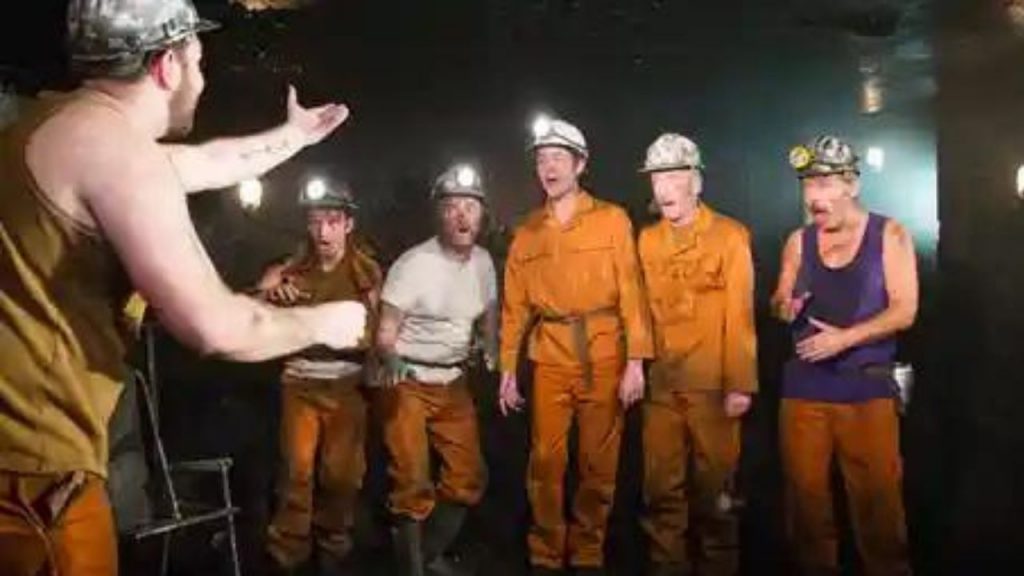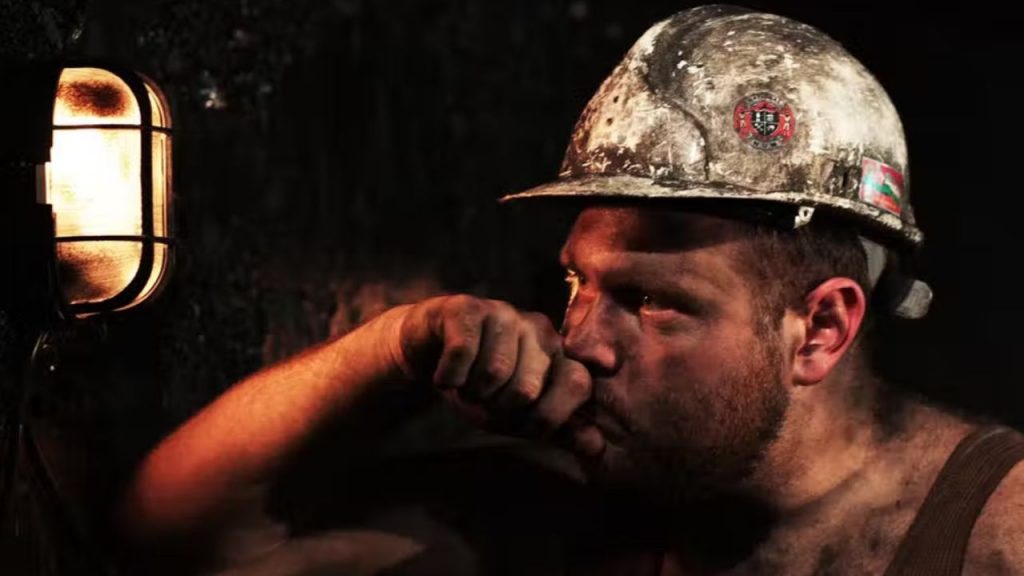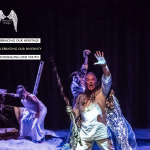The holy ground of the working class: Land of Our Fathers at Theatre 503
Engaging from the outset, the play hits the audience with a mining disaster only seconds after an explosion that traps six miners. The fact that it is 1979 adds even greater tension. At Theatre503.
There are locations in every country that are invested with special significance because they symbolize a profoundly important event, like a battle or a religious experience. Arguably, English and Welsh coalfields, with their direct links to bringing about the Industrial Revolution and Britain’s ascendency as a global power, have come to signify both locations of bitter class warfare and places that call up mythologies about the character of the British working class.
So far, the most notable literature representing the lives of the miners who face almost perpetual danger underground has been the subject of such works as D H Lawrence’s Sons and Lovers, George Orwell’s The Road To Wigan Pier and, more recently, playwright Lee Hall’s The Pitman Painters. Now young playwright Chris Urch’s Land Of Our Fathers brings the coalmine once again to our attention, as he locates his first major work set in a collapsed mine site in South Wales.

Engaging from the outset, the play hits the audience with a mining disaster only seconds after an explosion that traps six miners. The fact that it is 1979 adds even greater tension as the audience listens to allusions of Margaret Thatcher’s impending political victory in the men’s conversations throughout the play. With ironic acuity, the playwright sets up another kind of disaster for the men, even if they manage to survive their current life-threatening crisis. It is this double threat which Chris Urch expertly crafts as his six characters face their lives on the brink of ending forever.
The result is the portrayal by an ensemble of six actors of characters trying to name what will be lost if they and their way of life disappear forever: the personal is political and visa versa. The cast is exceptionally strong and realise this intention with stunning truthfulness: Clive Merrison portrayal of Bomber is unforgettable in its understated way of showing a highly flawed yet honourable man; Patrick Brennan’s Chopper shows the ethical contractions of a Union leader who grows into the realization of the “poisoned chalice” he drinks from in order to fulfill his personal ambition; Paul Prescott’s Hovis is exemplary in playing the foreign Polish worker who, despite his brutalizing war-time experiences, retains a gentle humility; Kyle Rees as Curly is perhaps the most overtly entertaining as his oversized personality demands an end to the troubles the men find themselves in; Taylor Jay-Davies as Chewy works well as a freer spirit in opposition to more conservative characters and Joshua Price’s Mostyn is suitably innocent and awkward as the latest recruit.
The mood of the play is superbly created by designer Signe Beckmann and lighting designer Hartley Kemp. Viewing the dramatic action in the glittering black cavern makes me feel as if I am looking at a giant dirty pore of a living organism referred to as “the mine”. The trapped men continually indicated areas above them where other men with drills are supposed to be coming from to rescue them. At other times, they speak of other passages and caverns that might be reached by digging. These spaces within the mine hold the tantalizing, unreachable promise of release. Then somewhere, way above, exists a kind of promised land of homes, shops, pubs, families and friends. The audience comes to appreciate that it is the place from where the men draw their motivation to return each day to the punishing work underground.
To show this even further the playwright uses magnificent Welsh choir singing and Union camaraderie. Yet this is perhaps the most poignant irony built into the structure of the play, because rather than creating a compelling sense of the coalfield as a edifying source of human struggle, the tribal loyalty of belonging shows up how the miners censored each other’s ambitions and expectations in order to keep each man working in the mine. This is powerfully presented, for instance, in the arguments between the two brothers, Curly and Chewy, who begin the play in conflict due to Chewy’s decision to leave mining and go to Art School in London.
This is made even more powerful as the dialogue shows the depth and breadth of the men’s relationships through surprising twists and turns in their overlapping histories. For instance, Bomber and Chopper share a long friendship tinged with many betrayals, which involves Chopper’s difficult choice to abandon Mostyn’s young mother when she decides to keep and bring up their baby on her own. This is then connected in the drama with Mostyn’s sense of independence as his mother’s choice to give him life is linked to his own courage to come to know his father. One of the most moving monologues in the play is when the Mostyn tells Chopper that the fantasies of childhood are over and that he is prepared to accept the fact that he has been rejected by him because “…there’s nothing you could possible give me that I don’t already have”.
The monologue, which comes at the end of the play, feels like a declaration of independence of a younger generation who has nothing to gain from their fathers or from the “land of their fathers”. What the play shows is that it is more than broken bodies that are inflicted in the underground mines, it is a way of life in which intelligent men have no scope for further education and so also often break their minds and spirits in sticking to such harsh work. The ghosts of absent and alcoholic fathers who die on retiring from their mining work haunt the men, leaving their widowed mothers struggle on in dire circumstances.
The play ends halfway between truth and myth, with the vision of release, and symbolically a new life, remaining thwarted up to the very end. This is a great achievement by a young playwright with wisdom far beyond his age, whose understanding shows that the emancipation of workers from exploitation is still a work in progress.
Date reviewed: Friday 20th September 2013






